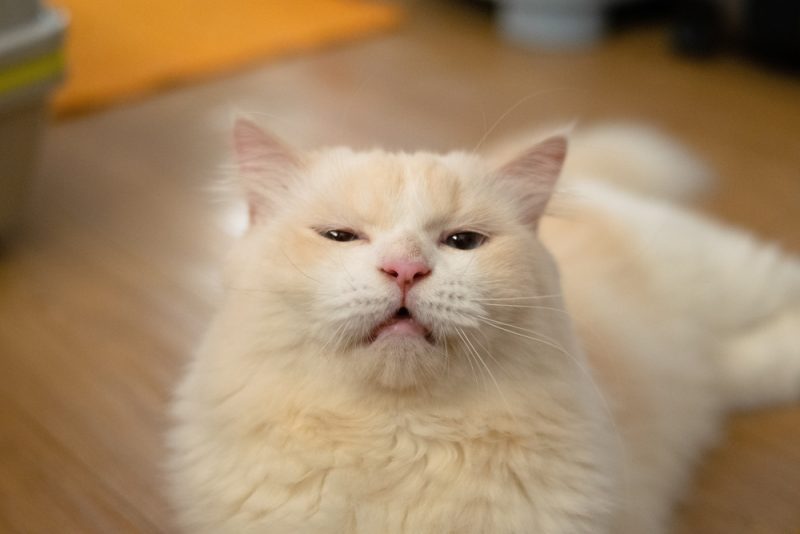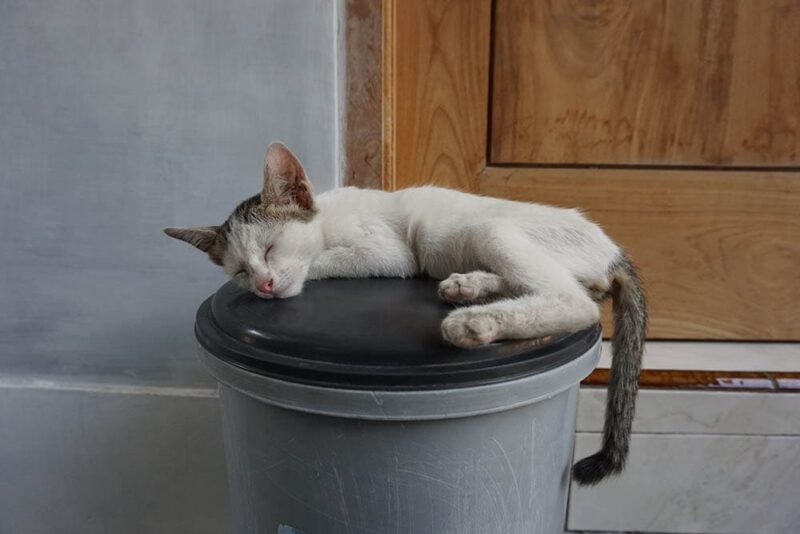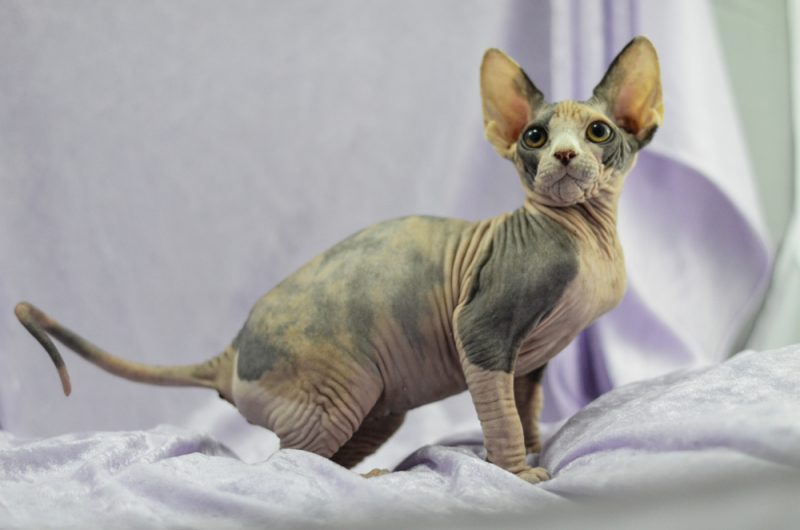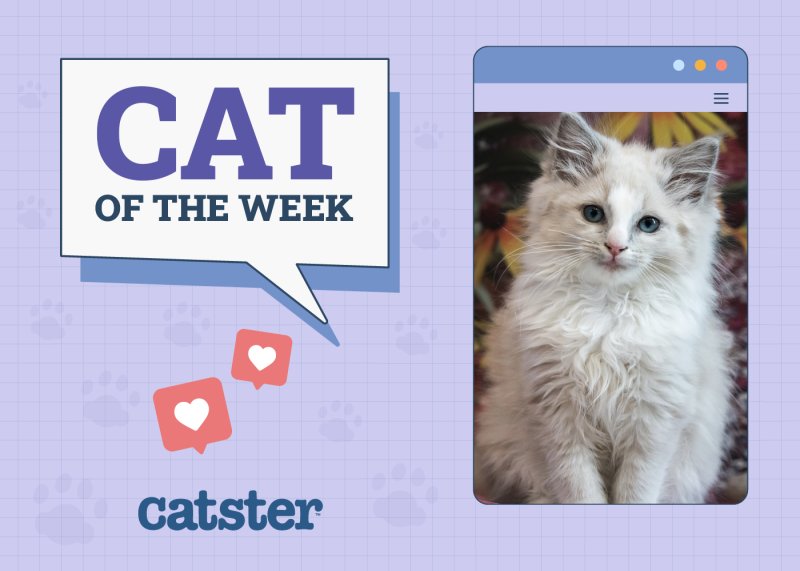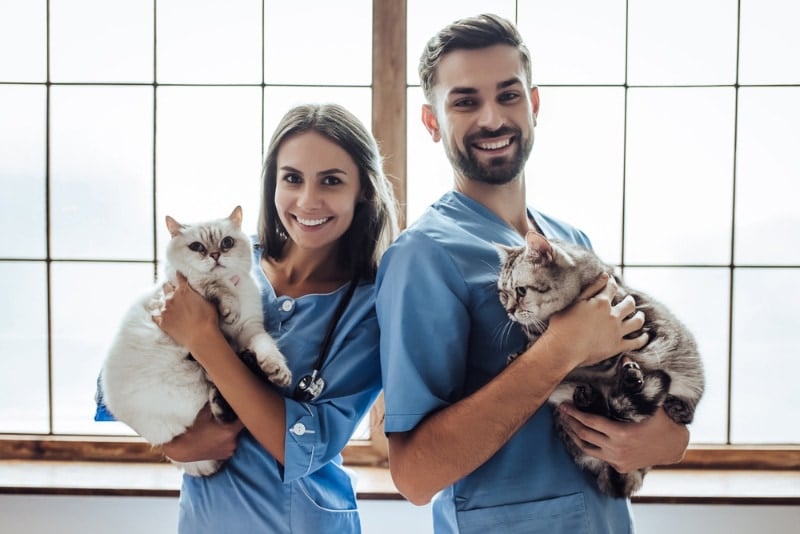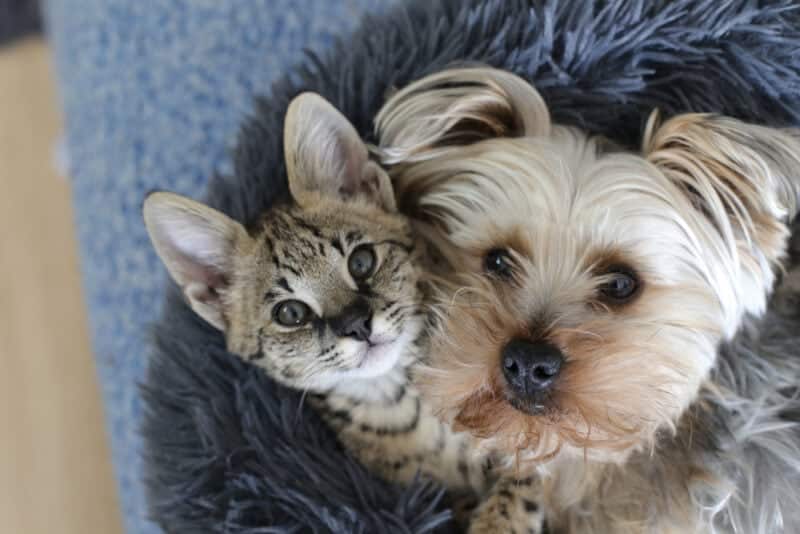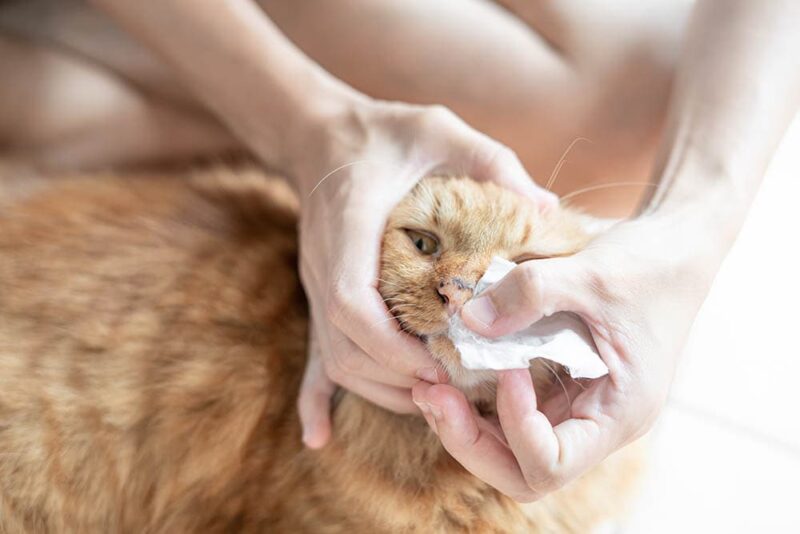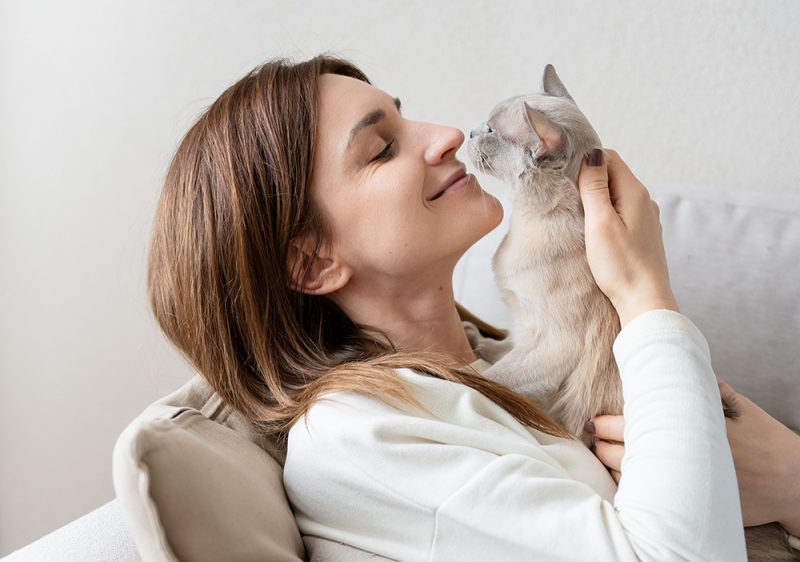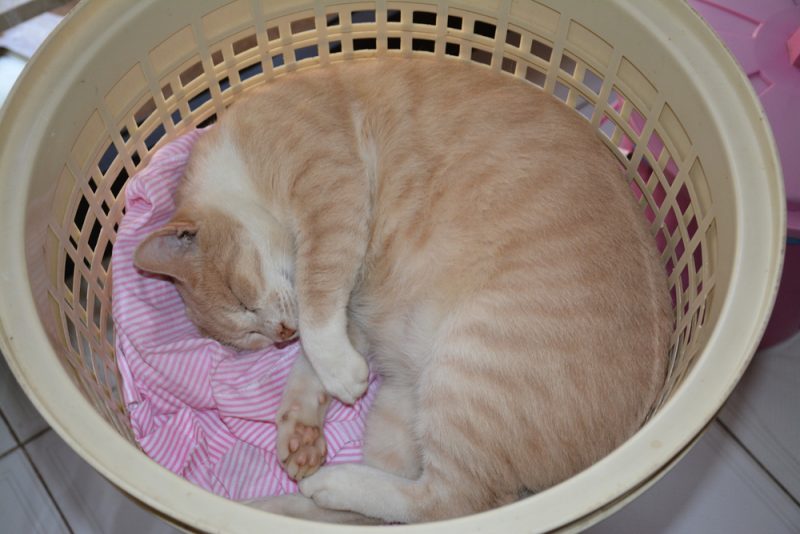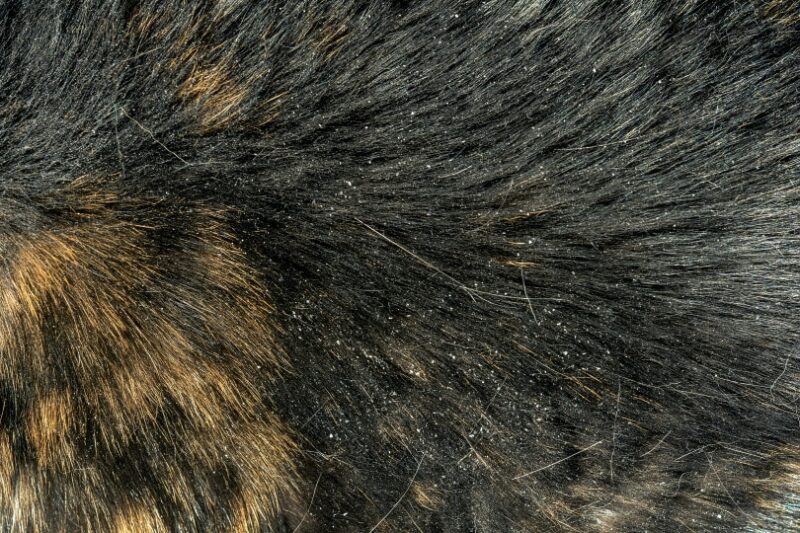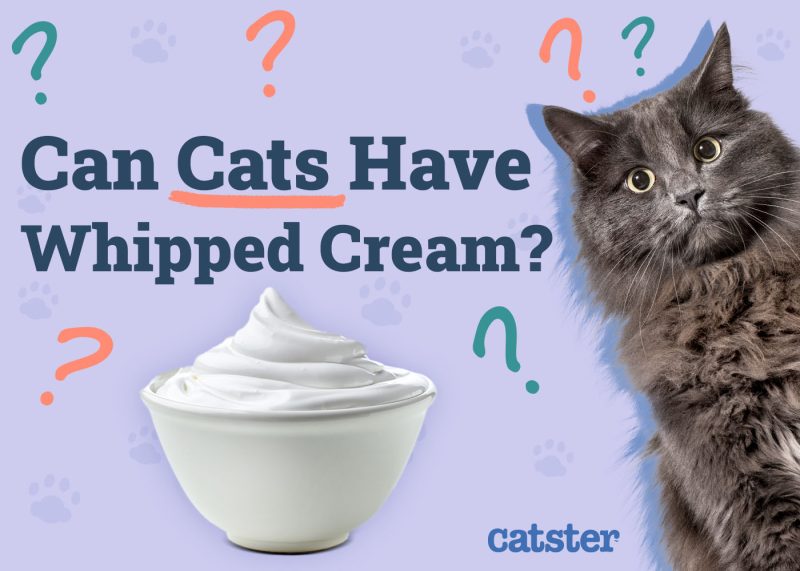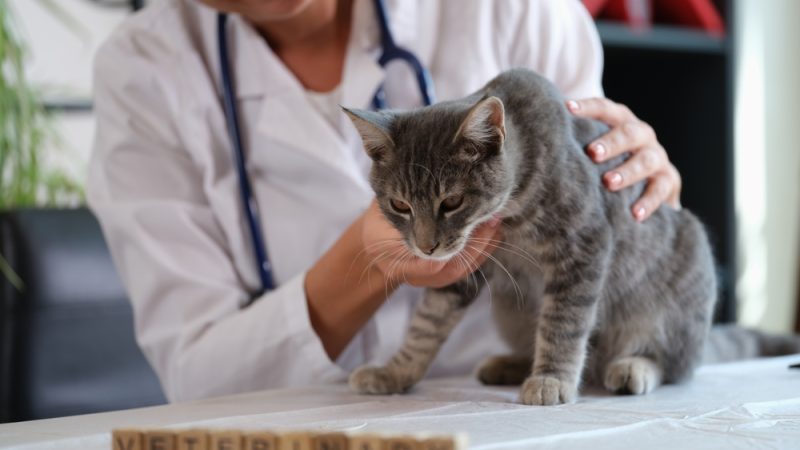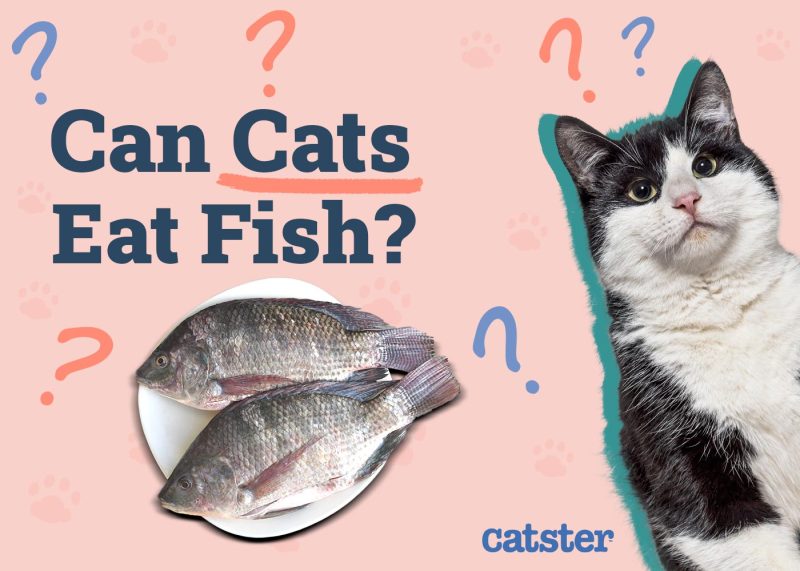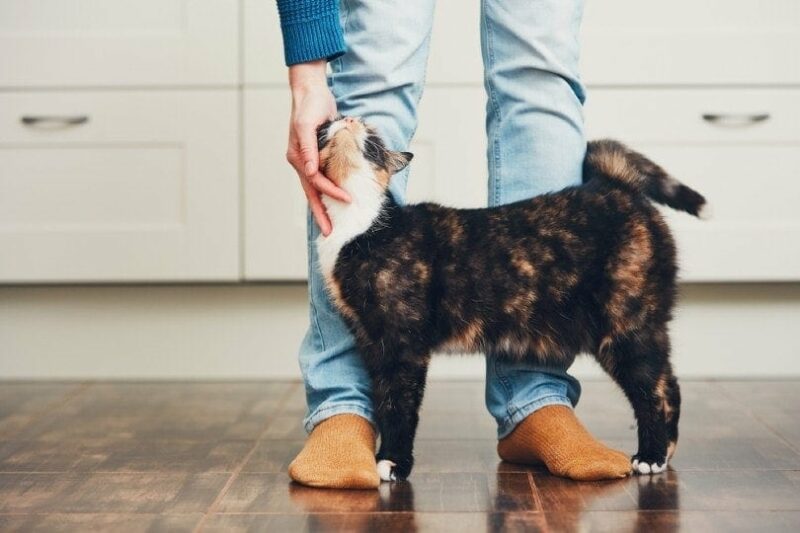In this article
Have you ever noticed your cat pull a face as if they’ve just smelt the most disgusting thing ever? Eyes closed, mouth wide open, lip curled in, neck extended—it’s an expression that certainly resembles repulsion. This is actually a natural reflex known as the Flehmen response (sometimes referred to as the Flehmen grimace or reaction too). And, interestingly, it has nothing to do with detecting a foul smell.
Rather, it is a technique that cats (and some other species) have evolved in order to process certain pheromones. So, what is it, and why do cats do it? First, we need to understand the aforementioned pheromones.

Cat Communication and the Role of Pheromones
Pheromones are messenger molecules that cats use to communicate with each other. They are chemical substances that are secreted outside of the body in fluids like urine and sweat. Essentially, pheromones are a hidden form of communication. Certain species use them as signals from one individual to another.
- Rubbing their cheeks onto things
- Urinating on objects and surfaces to “mark their territory”
- Emptying the contents of their anal glands when they are stressed or fearful (these are two scent glands on either side of the anus)
- Butting their head against someone, which identifies him or her as “safe”
What Is the Flehmen Response in Cats?
The Flehmen response is a normal behavioral response that cats “perform” when they detect certain pheromones. In day-to-day life, cats are constantly responding to stimuli; these stimuli can be odors, pheromones, sounds, tastes, and more. By using the Flehmen response, cats are able to process smells and pheromones, and then access the information it might be telling them.
The point of the Flehmen response is to bring the air holding the scent or odor over something called the vomeronasal organ (also referred to as the Jacobson’s organ). When cats perform the Flehmen response, two small ducts behind the incisor teeth of the top jaw open up. The opening of these ducts allows the scent or pheromone to travel to the vomeronasal organ.
This organ is a small little bump on the roof of the mouth that processes pheromones and hormones—not just those of other cats, but also potential predator and prey species. It perceives the scent as something more than just a scent, but less than a vibration.
From here, the signals travel to the smell center of the brain, and then to the hypothalamus. This is a very important and busy part of the brain that can influence reproductive hormones and behavior.
We’ve broken the pathway down into several steps, but in real time the whole process occurs in seconds, or less. Your cat can then decide what to do with the acquired information. They might run or they might do nothing; they might urinate or sleep; or they might go looking for a potential mating partner.
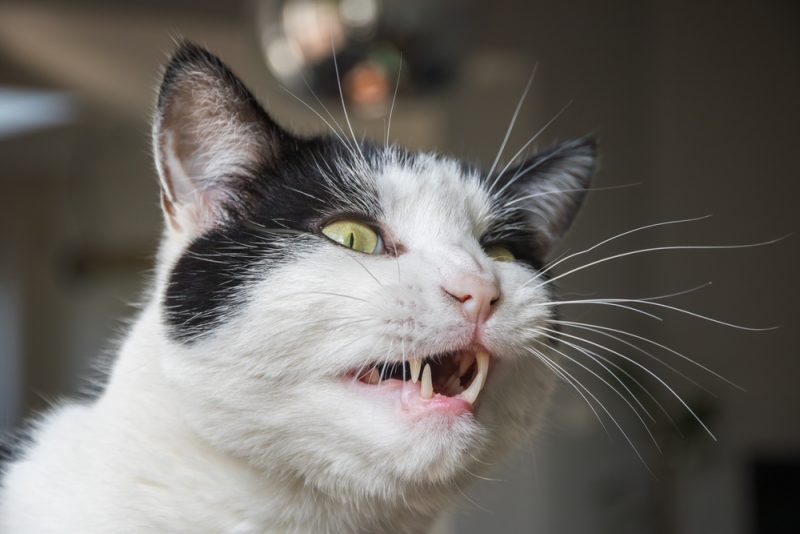
What Does the Flehmen Response Look Like?
If you haven’t caught your cat actually carrying out a Flehmen response, you’re probably wondering what this remarkable and curious face-pulling actually looks like.
Your cat will assume a facial expression as if they have smelled something very unpleasant. They usually hold their mouths wide open and curl their upper lip. This exposes the upper front teeth, known as the incisors. While they do all of this, cats are breathing in to transmit the scent to the vomeronasal organ in their mouth.
In some instances, cats will stretch their neck out or hold their head at a funny angle to optimize the processing of the scents and odors. Your cat will only hold this pose for a minute or less, before resuming their normal expression and activities. If the messages aren’t super clear, they may perform the Flehmen response a second or third time.
What Causes the Flehmen Response in Cats?
It would seem logical that the Flehmen response is an involuntary or instinctive action, but cats actually have to decide to do it. The Flehmen response is a voluntary action taken by cats when they are exposed to an interesting odor or pheromone of another animal (typically another cat).
The Flehmen response is commonly used by male cats smelling female cats’ urine to assess if she is ready to mate. However, it can be used by any cat when they come across a scent that they deem worthy of further investigation.
Do I Need to Be Worried About the Flehmen Response?
No—the Flehmen response is perfectly normal cat behavior. Despite its strange appearance, there is nothing to worry about, and your cat is not in any discomfort or pain. Your cat will normally be perfectly calm.
The Flehmen response should be distinguished from cats that are breathing with their mouth open for a prolonged period of time. These cats will normally be in distress and have labored or rapid breathing. Open-mouth breathing certainly is concerning and warrants a visit to the veterinarian.
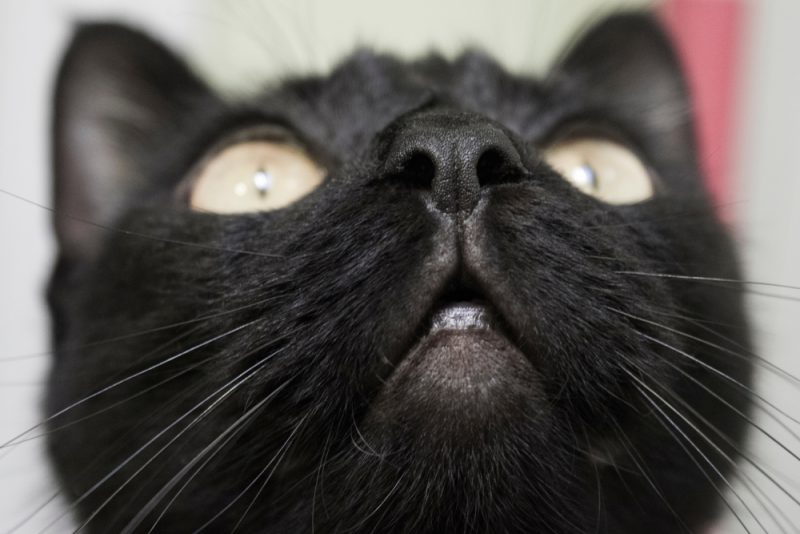

Conclusion
Many other animals exhibit the Flehmen response, including horses, giraffes, lions, tigers, and more. Some people may have a vomeronasal organ, but they are not functional in people; in other words, they are a remnant of evolution that we do not use.
We hope this article has helped you understand this unique behavior from your feline!
Featured Image Credit: Bea Llonador, Shutterstock
